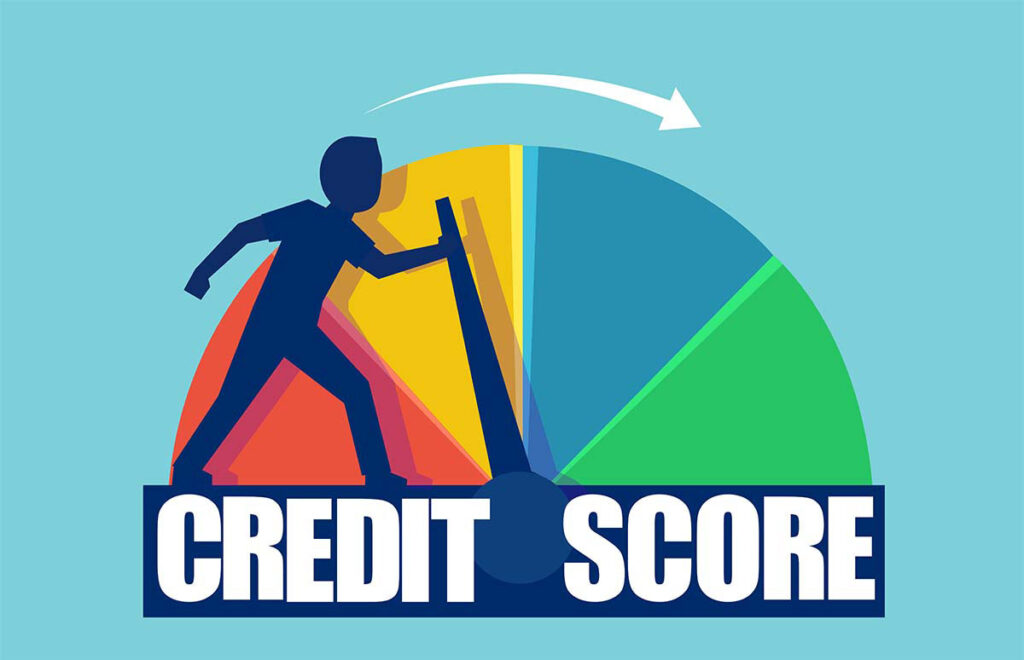
March is officially Credit Education Month. This means it’s the perfect time to start learning about your credit score and how it affects your financial future. Knowing the difference between good and bad credit can help you make informed decisions about investing in yourself and your family. So, let’s dive into what you need to know about credit education.
What Is a Credit Score?
The Consumer Financial Protection Bureau describes a credit score as prediction of your credit behavior, such as how likely you are to pay a loan back on time, based on information from your credit reports. Your credit score is a 3 digit number and is determined based on how much debt you have, how often you pay bills on time, and more.
Your FICO® credit score can range from 300–850, with higher scores indicating better financial habits. In general, scores above 700 are considered good, and scores below 600 are considered bad.
How Does Your Credit Score Affect You?
Your credit score can determine whether or not lenders approve loans for big purchases like cars or homes. It can also determine interest rates for those loans. That means if you have a low score, you may not qualify for loans. Having a low score could also lead to paying higher interest rates than someone with a higher score.
A good credit score also helps when it comes to renting an apartment or getting utilities set up. Landlords and utility companies often run a check on prospective tenants’ credit history before making any agreements.
How To Build Up Your Credit
If your credit score is lower than you’d like it to be, there are steps you can take to improve your it. This includes:
Check Your Credit Report for Errors
You can’t improve your credit score if you don’t know what information it’s based on. Request a free copy of your credit report from each of the three major reporting bureaus-Experian, Equifax and TransUnion. This can help you spot any potential errors or negative entries that could be hurting your score.
Once you have a copy, you’ll want to ensure that there are no incorrect entries or late payments that are dragging down your score. If you find any errors, contact the credit bureau to get them corrected as quickly as possible.
Pay Bills on Time
Paying bills on time is one of the most important things you can do to build up your credit score. Late payments can stay on your report for years, so make sure you set reminders or auto payments to ensure that all your bills are paid on time.
If you do find yourself in a situation where you can’t pay off a bill, contact the creditor as soon as possible. Some creditors may be willing to work out an agreement and help keep your score from taking a hit.
Get A Secured Credit Card
A secured credit card can be a good option if you’re just starting to build your credit or need to repair bad credit. You’ll have to put up a deposit, and the limit of the card will match that deposit, but it can be a low-risk way to establish or rebuild your credit score.
Using the card responsibly can help you build up your score over time. To use your credit card responsibly, make sure you’re paying bills on time and keeping balances low.
Ask For Higher Credit Limits
Your credit utilization ratio is the amount you owe compared to your total available credit. This is a very important part of your credit score. Forbes recommends using no more than 30% of your credit limit at any given time. If you have a low balance or no balance at all, consider asking for an increase in your credit limit. This will give yourself more breathing room.
Just remember that higher limits don’t necessarily mean more spending power. They just help you keep your credit utilization ratio in check.
Use Credit Wisely
Using credit cards may actually help your score as long as you use them responsibly. To build up your credit score quickly, try to keep balances on all of your cards below 30% of the total limit—higher balances can start to hurt your score.
Additionally, it can be good to avoid taking out too many loans or opening too many accounts in a short period of time. Applying for multiple loans and credit cards can make it look like you are relying too heavily on credit, which could drop your score.
What Are Some Good Apps to Keep Track of Your Credit Score?
There are several apps and websites that can help you keep track of your credit score. Credit Karma®, Experian®, and Mint® all offer free services to monitor your credit score. Additionally, many banks also have apps that allow you to check your score and make payments on time.
Credit Education Month is the perfect opportunity to brush up on your financial knowledge and get educated about what goes into having a good credit score. Though it may take some time to build healthy spending habits that can improve your score over the long term, taking steps now may ensure that your financial future remains secure no matter what life throws at you!
High-interest loans can be expensive and should be used only for short-term financial needs, not long-term solutions. Customers with credit difficulties should seek credit counseling. The opinions expressed above are solely the author’s views and may or may not reflect the opinions and beliefs of the website or its affiliates. Cash Factory USA does not provide financial advice.
Image(s) or Footage (as applicable), used under license from Shutterstock.com.